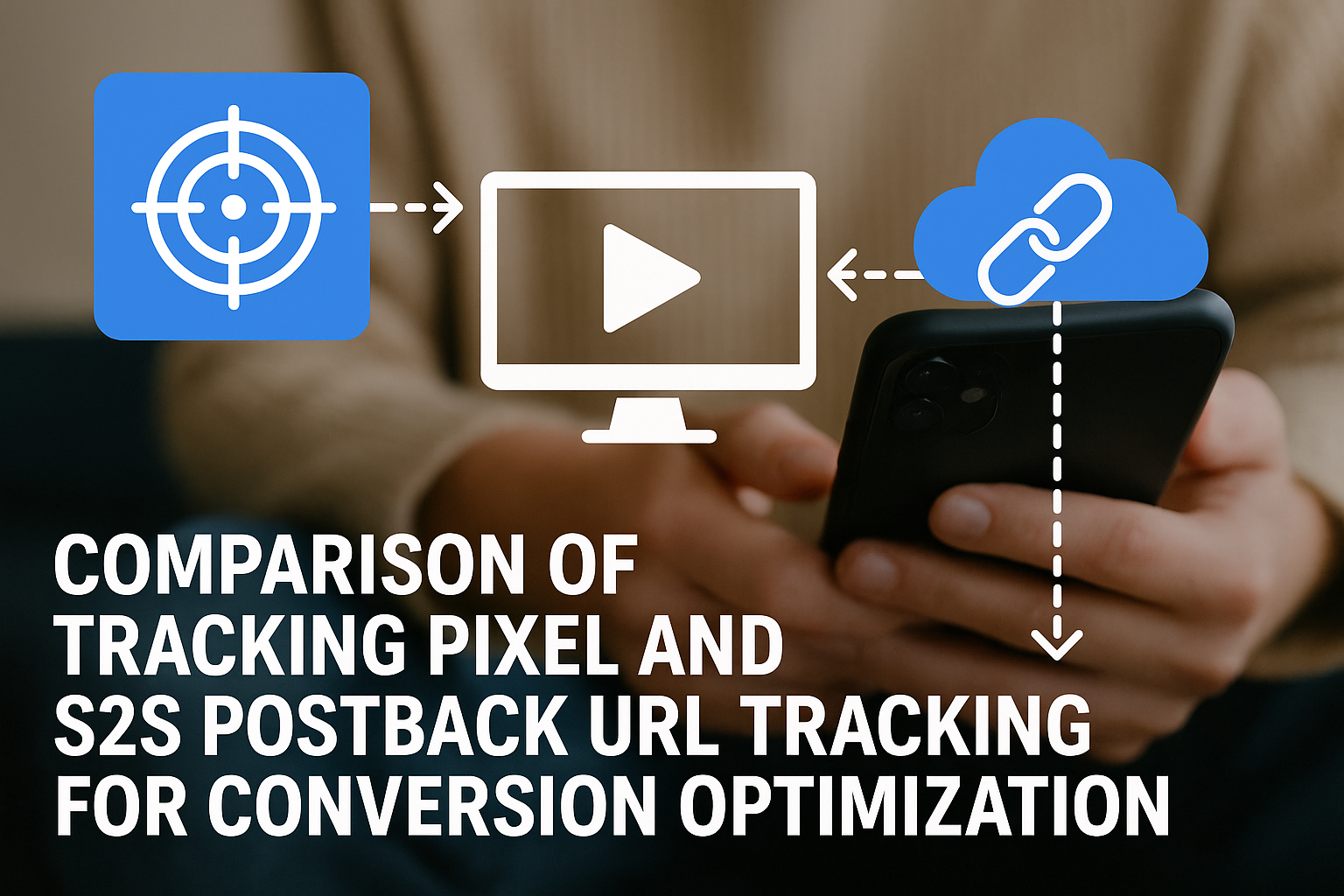
Introduction:
When it comes to optimizing conversion tracking, the choice between Tracking Pixel and S2S Postback URL tracking is a critical decision for digital marketers. These two methods offer distinct advantages and drawbacks, each catering to specific tracking needs. In this in-depth comparison, we’ll delve into the differences, benefits, and scenarios where each method shines, empowering you to make an informed choice.
Tracking Pixel:
At the heart of Tracking Pixel lies the concept of utilizing browser cookies to store user activity data. These cookies are temporary repositories of information about a user’s interaction with a website. When a conversion occurs, these cookies are revisited to validate the user session and attribute the conversion to the corresponding visit. The implementation involves embedding a small piece of HTML code, known as a pixel, on a website or landing page to monitor user actions and conversions.
Advantages of Tracking Pixel:
- Ease of Setup: The simplicity of setting up Tracking Pixel is a major draw. A quick copy-and-paste operation places the HTML code on the confirmation page, facilitating swift implementation.
- Organic Traffic: This method is particularly well-suited for organic traffic scenarios, where granular tracking may not be a priority.
- Compatibility: Tracking Pixel can be employed across most networks, even if S2S Postback URL tracking support is lacking.
Disadvantages of Tracking Pixel:
- Inaccuracy: A notable drawback is its vulnerability to user-driven inaccuracy. User-deleted cookies can disrupt tracking reliability.
- Browser Limitations: Evolving browser restrictions on unauthorized cookie tracking raise concerns about accurate conversion tracking.
S2S Postback URL Tracking:
A Deeper Dive S2S Postback URL tracking represents a more sophisticated approach to tracking conversions. This method generates a unique click ID through HTTP requests, ensuring precise tracking. When a conversion event takes place, the affiliate network transmits the click ID and relevant information to the tracking software, such as Dmedia. This method ensures the utmost accuracy, security, and reliability in conversion tracking.
Advantages of S2S Postback URL Tracking:
- Accurate Tracking: S2S Postback URL tracking stands as the pinnacle of precision. Since tracking occurs server-side, it remains unaffected by user-initiated cookie deletions.
- Security and Reliability: This method significantly reduces the risk of fraudulent activities. Moreover, it offers multiple fraud prevention mechanisms to bolster security.
- Flexibility: S2S tracking provides various avenues for signaling successful events beyond conventional conversion tracking.
- Transparency: The comprehensive user session data accessible through S2S tracking allows meticulous examination of conversion numbers.
Disadvantages of S2S Postback URL Tracking:
- Setup Complexity: Setting up S2S tracking can be challenging, particularly for those new to the method. However, the benefits often outweigh the initial setup hurdles.
Exploring Conversion Tracking Capabilities:
Both Tracking Pixel and S2S Postback URL tracking methods are versatile in their capacity to monitor various campaign parameters, including clicks, conversions, transaction statuses (pending, approved, declined), and events. Whether you opt for the simplicity of Tracking Pixel or the sophistication of S2S tracking, the core objective of monitoring and optimizing campaign performance remains intact.
Conclusion:
The selection between Tracking Pixel and S2S Postback URL tracking hinges on your specific requirements. For marketers dealing predominantly with organic traffic, lacking technical expertise, and encountering limited S2S support, Tracking Pixel may suffice. However, the superior accuracy, security, and reliability of S2S Postback URL tracking make it the recommended choice whenever feasible.
At Dmedia, we recognize the importance of effective conversion tracking. Our platform offers advanced integrations with major traffic sources like Facebook, Google, and Bing Ads, streamlining the tracking process and elevating your campaign performance.
By delving into the nuances of Tracking Pixel and S2S Postback URL tracking, you can make an educated decision that aligns with your marketing objectives. Elevate your conversion tracking strategy by choosing the method that best suits your needs and objectives.






No comment yet, add your voice below!